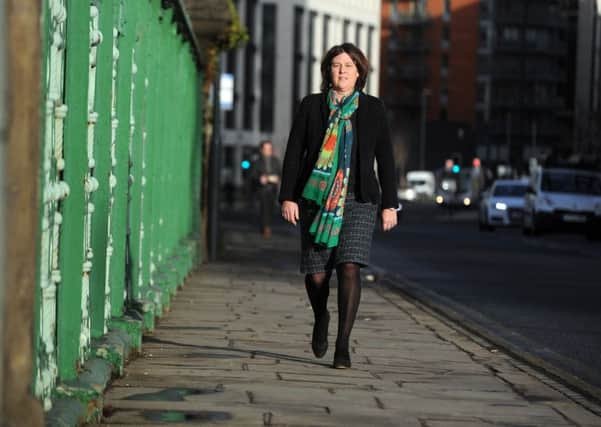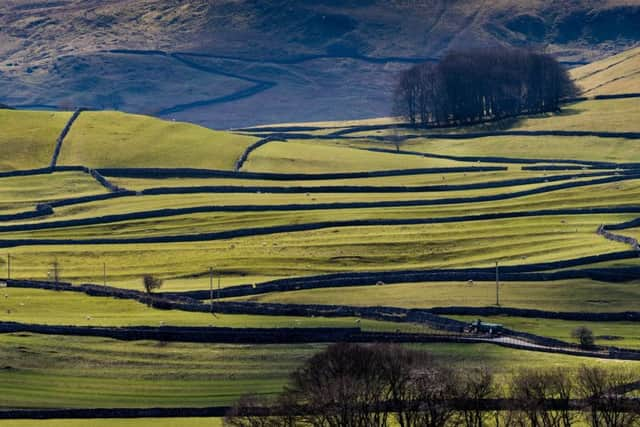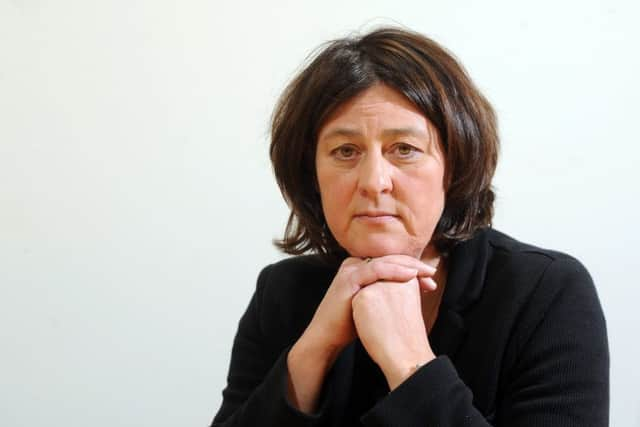We have all let rural domestic abuse victims down and must all act so they no longer suffer in silence – Julia Mulligan


We see this in all sort of ways, from access to broadband and public transport, to the ‘per person funding’ by government, and not least, the gulf in policing satisfaction and confidence between rural and urban communities set out by the most recent National Rural Crime Survey. But these are arguably the obvious and tangible differences, and certainly issues rural dwellers experience every day.
Advertisement
Hide AdAdvertisement
Hide AdNew research examines a different problem. We have uncovered a deeply hidden and disturbing side to rural life. Far from the peaceful idyll most people have in their mind when conjuring up the countryside, this report bears the souls and scars of domestic abuse victims, who all too often are lost to support, policing and criminal justice services.


Hidden under our noses. Hidden by abusers who like to keep it that way. A scale of abuse hitherto unseen.
This report has been over a year in the making. During that time, I have spoken to many people across Yorkshire and beyond about the emerging themes.
Advertisement
Hide AdAdvertisement
Hide Ad

Everyone has nodded and said, yes we know there is domestic abuse in rural areas, yes we know there are problems for victims. But now, with the publication of this report – the first ever to look at domestic abuse specifically through the lens of rurality – its scale and nature is starkly exposed for the first time. Nodding and promising to carry on much as we do now is not good enough.
All parties with a duty to help victims – the police, support services, charities, police and crime commissioners, health services and many others – need to understand that we have missed this. We have let victims and survivors down. We have collectively failed. We need to put that right. And for all of that, let me be the first to apologise to those we have failed.
This report must surely be a catalyst to help us better protect the women, children and men in rural communities who suffer daily at the hands of calculating, manipulating, controlling and violent abusers.
Advertisement
Hide AdAdvertisement
Hide AdRural victims are half as likely to report their abuse to others, rural victims’ abuse goes on significantly longer, rural victims cannot readily access support services, rural victims live in a society that de facto protects the perpetrators and rural victims are isolated, unsupported and unprotected in a rural hell, which is purposefully ‘normalised’.
We need to challenge the societal constructs that abusers deliberately exploit. Bucolic rural life, characterised by gentle living, tradition and close-knit communities has a dark side. It fosters a strong sense of male entitlement, which goes comparatively unchecked, flourishing alongside endemic ignorance about domestic abuse, deliberate or otherwise.
It is taboo, with people deliberately turning their backs on victims, who are left physically and socially isolated, feeling deeply ashamed. Many of us care very much about the rural way of life, and appreciate its benefits, but we must also be disturbed and disgusted by the patriarchy it fosters and the abuse it clearly facilitates, along with the profound consequences.
We have heard the truly harrowing, in-depth testimonies of 67 victims. They include many from Yorkshire with stories of heartbreak and fear compounded by the impact of a justice system and support network that does not deal with the impact of rurality.
Advertisement
Hide AdAdvertisement
Hide AdAnyone with responsibility for supporting victims in rural communities needs to pause and put themselves in the shoes of the victim. We are particularly concerned about the way perpetrators isolate and control their victims, which can lead to violence and murder.
In the first instance, we need to acknowledge there is a significant, hidden problem and understand its specific complexities, because by continuing to gloss over the reality we are inadvertently supporting the perpetrators who often employ rurality as a weapon in their abuse.
We need to take a fresh look at the map. At the white spaces where ‘nothing’ happens, because abuse is there, secreted in the underbelly of our countryside. We must innovate, to find ways to overcome the specific barriers rural victims face, so they get the support they deserve, and we can deal with the perpetrators.
Revealing the truth was the easy bit. Acting on it is hard but acting on it is what we have to do. We need to do it positively, we need to look forward and work together to improve the service we offer to victim and survivors of domestic abuse in rural areas, and we need to do it now.
Julia Mulligan is North Yorkshire’s police, fire and crime commissioner. She is a Conservative politician and chair of the National Rural Crime Network.